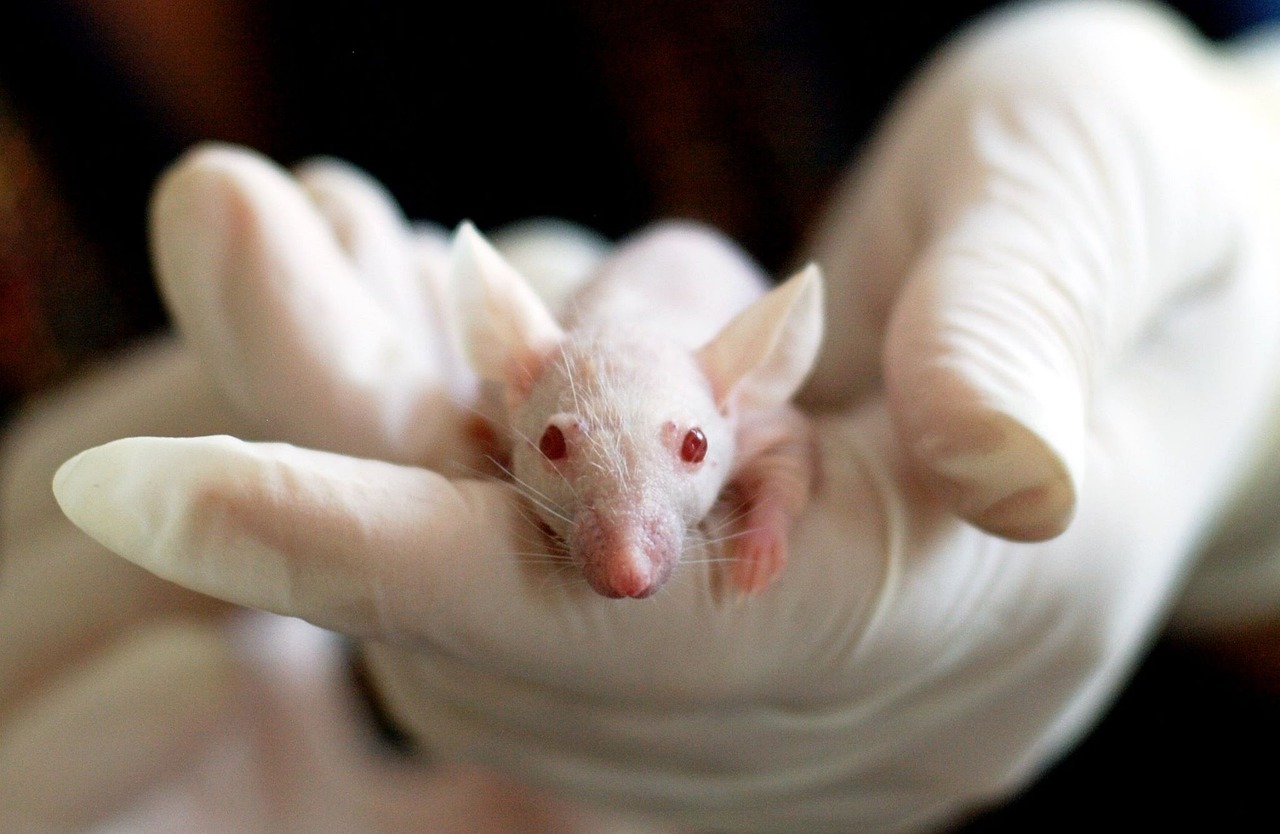How have Philosophical Theories Shaped the Field of Genetics?
The intersection of philosophy and genetics is a fascinating realm that reveals how our understanding of life itself has evolved. Throughout history, various philosophical theories have not only influenced genetic research but have also shaped the ethical considerations and societal implications surrounding this field. Imagine a world where our very essence—our DNA—was viewed through the lens of philosophical inquiry. This exploration leads us to ponder profound questions about identity, free will, and the nature of existence. How do our genes define us, and to what extent can we alter them? These questions are not merely academic; they resonate deeply in our daily lives as we navigate the implications of genetic advancements.
As we delve into the historical context of genetics, it becomes clear that philosophical ideas have played a crucial role in shaping scientific advancements. The journey of genetics began long before the discovery of DNA, with early thinkers pondering the nature of heredity and evolution. Theories proposed by philosophers like Aristotle and later, Darwin, laid the groundwork for understanding how traits are passed down through generations. Their insights prompted scientists to explore the mechanisms of inheritance, ultimately leading to the modern field of genetics we know today.
In examining key philosophical theories, we encounter concepts such as determinism and reductionism. Determinism suggests that our genetic traits are predetermined, casting a shadow over the ideas of free will and moral responsibility. If our genes dictate our behaviors and predispositions, what does that mean for personal accountability? This question is particularly poignant in discussions about hereditary conditions, where individuals may grapple with the implications of their genetic makeup on their life choices.
On the other hand, reductionism offers a contrasting perspective, seeking to break down complex phenomena into simpler components. This approach has significantly impacted genetic research methodologies, allowing scientists to dissect intricate biological processes. However, it also raises concerns about oversimplifying the interactions between genes and the environment. As we explore these philosophical underpinnings, it becomes evident that they not only guide scientific inquiry but also influence how we interpret data and understand human behavior.
As we move forward, the philosophy of science emerges as a crucial player in the genetics arena. It shapes the methodologies employed in research, influencing how questions are framed and findings are interpreted. The debates surrounding scientific objectivity highlight the potential biases that can creep into genetic research, reminding us that science is not conducted in a vacuum. Societal influences and philosophical debates can shape the outcomes of research, leading us to question the integrity of our scientific endeavors.
Finally, as we grapple with the ethical considerations surrounding genetic engineering—particularly with groundbreaking technologies like CRISPR—philosophical questions about the moral implications of altering genetic material come to the forefront. The debates about genetic modification are not merely technical discussions; they are steeped in ethical dilemmas that challenge our understanding of what it means to be human. As we examine the societal impact of genetic engineering, we see how philosophical theories shape public perception and policy regarding these powerful technologies.
In conclusion, the influence of philosophical theories on the field of genetics is profound and multifaceted. As we continue to navigate the complexities of genetic research and its implications, it is essential to engage with these philosophical questions, ensuring that our scientific advancements align with our ethical values and societal needs.
- What is the relationship between philosophy and genetics? Philosophy provides a framework for understanding the ethical implications and societal impacts of genetic research.
- How does determinism affect our understanding of genetics? Determinism suggests that our genetic traits are predetermined, raising questions about free will and moral responsibility.
- What role does reductionism play in genetic research? Reductionism allows scientists to break down complex biological processes, but it can oversimplify the interactions between genes and the environment.
- Why are ethical considerations important in genetic engineering? Ethical considerations ensure that advancements in genetic engineering are aligned with societal values and do not compromise human dignity.

Historical Context of Genetics
Understanding the historical development of genetics is crucial for grasping how philosophical ideas have shaped scientific advancements, particularly in the realms of heredity and evolution. The journey of genetics is like a winding road, filled with discoveries, debates, and even controversies that have been influenced by the prevailing philosophical thoughts of their times. From the early musings of ancient philosophers to the groundbreaking discoveries of modern science, the evolution of genetic theory reflects a complex interplay between science and philosophy.
In the ancient world, thinkers like Aristotle and Plato pondered the nature of life and reproduction. Aristotle's theories on inheritance suggested that traits were passed down through a combination of parental contributions, laying the groundwork for future genetic understanding. Fast forward to the 19th century, when Gregor Mendel conducted his famous pea plant experiments, establishing the foundational principles of heredity. His work, however, was largely ignored until the early 20th century, when it was rediscovered and integrated into the emerging field of genetics.
As genetics began to take shape as a scientific discipline, the philosophical implications of heredity sparked heated debates. The idea that traits could be inherited led to questions about nature versus nurture. Were our destinies shaped by our genes, or did the environment play a more significant role? This tension between biological determinism and environmental influence continues to be a central theme in genetic discussions today.
Throughout the 20th century, the discovery of the structure of DNA by James Watson and Francis Crick in 1953 revolutionized genetics, ushering in the molecular biology era. This breakthrough not only advanced our understanding of genetic inheritance but also raised profound philosophical questions about the implications of manipulating genetic material. The ability to sequence and alter DNA has led to a new frontier in genetics, sparking debates about the ethical boundaries of genetic engineering and the potential consequences for humanity.
To illustrate the historical context of genetics, consider the following table that summarizes key milestones:
| Year | Milestone | Philosophical Implication |
|---|---|---|
| 1866 | Mendel's Laws of Inheritance | Foundation of genetic theory |
| 1953 | Discovery of DNA Structure | Understanding of genetic information |
| 1970s | Development of Genetic Engineering | Ethical considerations of altering life |
| 2012 | CRISPR Technology | Redefining genetic modification ethics |
The historical context of genetics is not just a timeline of scientific achievements; it is also a narrative woven with philosophical inquiries that challenge our understanding of life itself. As we continue to explore the genetic landscape, the interplay between philosophy and genetics will remain a critical factor in shaping our approach to genetic research and its implications for society.

Key Philosophical Theories
The intersection of philosophy and genetics is a fascinating realm that has been shaped by various philosophical theories over time. These theories not only influence the way we understand genetic research but also frame the ethical considerations that arise from advancements in this field. Two of the most significant philosophical theories relevant to genetics are determinism and reductionism. Each of these theories provides a unique lens through which we can examine the implications of genetic research on our understanding of human behavior, morality, and the nature of life itself.
Determinism is the idea that all events, including human actions, are determined by previously existing causes. In the context of genetics, determinism suggests that our genetic makeup predetermines our traits, behaviors, and even our destinies. This notion raises profound questions about free will and moral responsibility. If our genes dictate who we are, what does that mean for accountability? Are individuals with hereditary conditions absolved of responsibility for their actions? These questions challenge the very foundation of our understanding of personal agency.
On the other hand, reductionism offers a different perspective. This philosophical approach seeks to understand complex phenomena by breaking them down into their simplest components. In genetics, reductionism has been instrumental in advancing research methodologies. By isolating specific genes and studying their functions, scientists can make significant strides in understanding genetic disorders and developing treatments. However, this approach can sometimes oversimplify the intricate interplay between genes and the environment, leading to an incomplete picture of human behavior and health.
To illustrate the impact of these theories, consider the following table that summarizes their key characteristics:
| Theory | Definition | Implications in Genetics |
|---|---|---|
| Determinism | The belief that all events, including human actions, are determined by preceding causes. | Raises questions about free will and accountability in genetic predispositions. |
| Reductionism | The approach of understanding complex phenomena by breaking them down into simpler components. | Facilitates genetic research but may oversimplify interactions between genes and the environment. |
These philosophical theories do not exist in a vacuum; they interact with each other and with scientific practices. For instance, the deterministic view can lead to ethical implications in genetic counseling, where individuals may feel resigned to their genetic fates. Conversely, reductionism may lead to an overemphasis on genetic factors at the expense of environmental influences, which can skew public perception and policy regarding genetics.
As we continue to explore the complexities of genetics, it is essential to maintain a dialogue about these philosophical theories. Engaging with these ideas not only enriches our understanding of genetics but also ensures that we approach the ethical challenges they present with a nuanced perspective. The implications of these theories extend beyond the laboratory; they resonate in our everyday lives, influencing how we perceive ourselves and others in the context of genetic predispositions.

Determinism in Genetics
Determinism in genetics is a fascinating concept that suggests our genetic traits are largely predetermined by our DNA. Imagine your genes as a script for a play; they dictate the characters, plot, and settings of your life story. This notion raises profound questions about free will and moral responsibility. If our genetic makeup largely determines who we are, to what extent can we be held accountable for our actions? This dilemma has sparked intense debates among scientists, ethicists, and philosophers alike, leading to a deeper exploration of how genetics intertwines with human behavior and societal norms.
One of the most compelling aspects of genetic determinism is its implications for understanding hereditary conditions. For instance, if a person is genetically predisposed to a certain illness, does that mean they are destined to suffer from it? Or can lifestyle choices and environmental factors alter that fate? These questions not only challenge our understanding of health but also force us to reconsider the very essence of what it means to be human. In this context, determinism can be both enlightening and troubling, as it suggests a loss of control over our destinies.
Moreover, the deterministic view has significant implications in the realm of psychology and behavioral science. If our behaviors and personalities are largely shaped by our genetic codes, how do we account for the influence of upbringing, culture, and personal experiences? The interplay between nature and nurture becomes a critical area of study, prompting researchers to investigate whether genes act in isolation or if they interact dynamically with environmental factors.
To illustrate this complex relationship, consider the following table that summarizes the key aspects of genetic determinism versus environmental influence:
| Aspect | Genetic Determinism | Environmental Influence |
|---|---|---|
| Definition | Traits are predetermined by genetic makeup. | Traits are shaped by environmental factors and experiences. |
| Key Focus | Inherited traits and predispositions. | Life experiences and social interactions. |
| Philosophical Implications | Questions of free will and moral responsibility. | Emphasis on personal agency and accountability. |
In summary, while genetic determinism provides a compelling framework for understanding certain aspects of human behavior and health, it is essential to recognize the limitations of this perspective. Critics argue that an overly deterministic view undermines the complexity of human life, where environmental factors play a crucial role in shaping our identities and choices. As we navigate the intricate landscape of genetics, it becomes increasingly clear that a holistic approach—one that considers both genetic predispositions and environmental influences—is necessary to fully understand the human experience.

Ethical Implications of Determinism
The concept of determinism in genetics raises profound ethical questions that reverberate through society. At its core, determinism suggests that our genetic makeup is a blueprint that dictates our traits, behaviors, and even our destinies. This notion can be both fascinating and frightening. Imagine if our life paths were preordained by our genes—what does that mean for our sense of free will? Are we merely puppets of our DNA, or do we possess the agency to shape our own lives?
One of the most significant ethical implications of genetic determinism is the challenge it poses to the idea of personal responsibility. If our predispositions to certain behaviors or conditions are encoded in our genes, can we truly hold individuals accountable for their actions? For instance, if a person has a genetic predisposition to aggression, does that excuse violent behavior? This line of questioning not only complicates legal frameworks but also impacts societal attitudes towards individuals with hereditary conditions.
Moreover, the implications extend beyond individual accountability. There are broader societal ramifications to consider. If genetic determinism becomes widely accepted, it could lead to a fatalistic view of human behavior, potentially justifying discrimination against those deemed "genetically inferior." This could manifest in various forms, such as:
- Employment Discrimination: Employers might favor candidates based on genetic predispositions, assuming that certain traits correlate with job performance.
- Healthcare Bias: Insurance companies may exploit genetic information to deny coverage or raise premiums for individuals with hereditary conditions.
- Social Stigmatization: Individuals with genetic predispositions to certain conditions may face societal ostracism, leading to mental health issues and reduced quality of life.
These ethical dilemmas highlight the importance of a nuanced understanding of genetics. Critics of determinism argue that it simplifies the complex interplay between genetics and environment. They contend that human behavior is not merely a product of genetic coding but a tapestry woven from experiences, choices, and social influences. This perspective encourages a more holistic approach to understanding human behavior and emphasizes the importance of nurturing environments alongside genetic factors.
Ultimately, the ethical implications of genetic determinism compel us to reflect on our values as a society. As we advance in genetic research and technology, we must grapple with these questions: How do we balance scientific discovery with ethical responsibility? What safeguards can we implement to protect individuals from the potential harms of genetic determinism? These are not just academic inquiries; they are essential discussions that will shape the future of genetic research and its impact on society.
- What is genetic determinism? Genetic determinism is the belief that genes largely determine physical and behavioral traits, suggesting that our destinies are preordained by our genetic makeup.
- How does genetic determinism affect personal responsibility? It raises questions about accountability, as individuals may be seen as less responsible for their actions if those actions are influenced by genetic predispositions.
- What are the societal implications of accepting genetic determinism? Acceptance of genetic determinism could lead to discrimination, stigmatization, and biases in various sectors, including employment and healthcare.
- Can environmental factors influence genetic traits? Yes, while genetics play a significant role, environmental factors and personal experiences also contribute to the development of traits and behaviors.

Critiques of Determinism
While determinism presents a compelling narrative about the influence of genetics on human behavior and traits, it has faced significant critiques that challenge its validity and applicability. One of the main arguments against determinism is that it often oversimplifies the intricate interplay between genes and the environment. Life is not merely a product of genetic coding; rather, it is a complex tapestry woven from various threads, including personal experiences, cultural background, and social interactions. The deterministic viewpoint tends to ignore this multifaceted nature of human existence, leading to a skewed understanding of behavior and identity.
Critics argue that by attributing too much weight to genetic factors, determinism undermines the role of free will and personal agency. For instance, if individuals believe their behaviors are entirely dictated by their genes, they may feel less inclined to take responsibility for their actions. This can lead to a fatalistic outlook on life, where people resign themselves to their supposed genetic destinies, ignoring the potential for change and growth through conscious effort and decision-making. Such perspectives can have profound implications on mental health and societal attitudes towards accountability.
Moreover, the deterministic model often fails to account for the concept of epigenetics, which reveals that environmental factors can influence gene expression. This means that while genes may provide a blueprint, they do not dictate the final outcome. Instead, the environment can modify how these genes are expressed, leading to variations in traits that are not solely predetermined by genetic inheritance. This understanding opens up new avenues for exploring human behavior, emphasizing that change is possible and that individuals can shape their destinies through their choices and experiences.
Additionally, the deterministic approach can lead to stigmatization and discrimination, particularly against individuals with hereditary conditions. If society adopts a deterministic viewpoint, it may unjustly label individuals as 'predetermined' to behave in certain ways, thus perpetuating stereotypes and biases. This can hinder social progress and foster a culture of blame rather than understanding, ultimately affecting how society supports individuals with genetic predispositions.
In summary, while determinism offers a framework for understanding the genetic basis of behavior, it is essential to recognize its limitations. The critiques highlight the necessity of a more nuanced approach that considers the dynamic interactions between genes and environmental factors. This perspective not only enriches our understanding of human behavior but also fosters a more compassionate and responsible societal outlook.
- What is genetic determinism? Genetic determinism is the belief that genes alone dictate human behavior and traits, leaving little room for environmental influences.
- How does epigenetics challenge determinism? Epigenetics shows that environmental factors can modify gene expression, suggesting that behavior is not solely determined by genetics.
- Why is personal agency important in discussions about genetics? Personal agency emphasizes the capacity for individuals to make choices and take responsibility for their actions, countering the fatalistic implications of determinism.
- What are the societal implications of a deterministic view? A deterministic view can lead to stigmatization and discrimination against individuals with genetic predispositions, affecting how society perceives and supports them.

Reductionism and Genetic Research
Reductionism is a philosophical approach that seeks to understand complex phenomena by breaking them down into their simpler, constituent parts. In the realm of genetics, this perspective has significantly shaped research methodologies and interpretations. By focusing on individual genes and their functions, reductionism allows scientists to dissect the intricate mechanisms that govern heredity and biological traits. However, while this approach has led to remarkable breakthroughs in our understanding of genetics, it also raises important questions about the limitations of such a perspective.
For instance, consider the way reductionist thinking has propelled advancements in genetic engineering. By isolating specific genes responsible for certain traits, researchers can manipulate these genes to alter characteristics in organisms. This has paved the way for technologies such as CRISPR, which enables precise editing of genetic material. Yet, this reductionist view can sometimes ignore the broader context in which genes operate. Genes do not exist in isolation; they interact with each other and with environmental factors in complex ways. This interplay can profoundly influence the expression of traits, making it crucial for researchers to consider more holistic approaches alongside reductionism.
The impact of reductionism on genetic research can be illustrated through the following table, which highlights key areas where this approach has been beneficial, as well as its limitations:
| Benefits of Reductionism | Limitations of Reductionism |
|---|---|
| Facilitates targeted research on specific genes | Overlooks gene-environment interactions |
| Enables advancements in genetic engineering techniques | May lead to oversimplified conclusions about complex traits |
| Supports the development of gene therapies | Ignores the role of epigenetics in gene expression |
Moreover, reductionism has influenced how genetic research is communicated to the public. The simplification of genetic concepts can sometimes lead to misconceptions about the nature of heredity and the role of genetics in determining behavior and health. For example, the phrase "gene for" has become commonplace in discussions about various traits, suggesting a direct and simplistic relationship between genes and complex characteristics like intelligence or personality. This kind of reductionist language can contribute to a deterministic view of human behavior, which may not accurately reflect the intricate reality of genetic influence.
In conclusion, while reductionism has undeniably propelled the field of genetics forward, it is essential for researchers and the public alike to recognize its limitations. A balanced approach that incorporates both reductionist and holistic perspectives will likely yield a more comprehensive understanding of genetics and its implications for society. By embracing the complexity of genetic interactions, we can better appreciate the nuances of heredity and the ethical considerations that arise in genetic research.

Philosophy of Science in Genetics
The philosophy of science is not just a dry academic discipline; it serves as a vital lens through which we can understand the complexities of genetics. Imagine trying to navigate a dense forest without a map; that’s how it feels to approach genetic research without a philosophical framework. By examining the principles that guide scientific inquiry, we can better appreciate how genetics has evolved and continues to shape our understanding of life itself.
At its core, the philosophy of science in genetics addresses fundamental questions about the nature of scientific inquiry and the methodologies employed in genetic research. It challenges researchers to think critically about how they frame their questions and interpret their findings. For instance, when scientists explore genetic variations linked to diseases, they are not just collecting data; they are engaging in a philosophical dialogue about what it means to be human, to inherit traits, and to be affected by our biological makeup.
One of the key aspects of this philosophical inquiry is the scientific methodology used in genetics. The scientific method is a structured approach that typically involves observation, hypothesis formulation, experimentation, and analysis. In genetics, this might look something like this:
| Step | Description |
|---|---|
| Observation | Identifying a genetic trait or disease in a population. |
| Hypothesis | Proposing a genetic basis for the observed trait. |
| Experimentation | Conducting experiments, such as gene sequencing or CRISPR trials, to test the hypothesis. |
| Analysis | Interpreting the data to draw conclusions about genetic influences. |
However, the scientific method is not infallible. Philosophical debates surrounding scientific objectivity highlight the potential biases and societal influences that can affect genetic research outcomes. For example, how do cultural beliefs about genetics shape research priorities? Are certain genetic traits stigmatized, thereby influencing which studies receive funding? These questions remind us that science is not conducted in a vacuum; it is deeply intertwined with societal values and ethical considerations.
Moreover, the philosophy of science encourages us to consider the implications of our findings. As geneticists uncover the mysteries of DNA, they must grapple with the moral responsibilities that come with such knowledge. Are we prepared to handle the power that comes with editing the human genome? This philosophical inquiry is crucial as it shapes public policy and societal attitudes towards genetic research and its applications.
In summary, the philosophy of science in genetics is not merely an academic exercise; it is a necessary framework that guides researchers in their quest for knowledge. By understanding the philosophical underpinnings of their work, geneticists can better navigate the ethical landscapes of their discoveries and contribute to a more informed public discourse on the implications of genetic technologies.
- What is the role of philosophy in scientific research?
Philosophy provides a framework for understanding the principles and ethics behind scientific inquiry, helping researchers navigate complex moral and societal implications. - How does the philosophy of science influence genetics?
It shapes the methodologies used in research, influences the framing of research questions, and addresses the ethical implications of genetic discoveries. - Why is scientific objectivity important in genetics?
Maintaining objectivity helps ensure that research findings are credible and not unduly influenced by personal or societal biases. - What are the ethical considerations in genetic engineering?
Ethical considerations include the potential consequences of altering genetic material, the implications for future generations, and the societal impact of such technologies.

Scientific Methodology in Genetics
When we dive into the , it’s like peeling back the layers of an onion—each layer revealing more about how we understand the building blocks of life. Genetics, at its core, is a fascinating interplay of biology, mathematics, and philosophy, and the methodologies employed are crucial in shaping our understanding of heredity and evolution. The scientific method in this field typically involves a series of steps that guide researchers from observation to conclusion, ensuring that findings are reliable and valid.
Initially, researchers start with observations—noticing patterns in traits across generations, for instance. This is followed by formulating a hypothesis that can be tested. For example, a scientist might hypothesize that a particular gene influences a specific trait, such as eye color. Once a hypothesis is established, rigorous experimentation follows, often involving the manipulation of genetic material in model organisms or cell cultures. This experimentation can include techniques like gene editing, where scientists use tools like CRISPR to alter DNA sequences and observe the outcomes.
After conducting experiments, the next step is to analyze the data. This is where the magic happens! Researchers employ statistical methods to determine whether their findings support the hypothesis or not. It’s essential to remain objective during this stage, as biases can creep in and skew results. The interpretation of data is not merely about crunching numbers; it involves a philosophical lens through which to view the implications of the findings. Are the results significant? Do they challenge existing theories? This is where the philosophy of science intertwines with genetics, shaping how conclusions are drawn.
To illustrate this process, let’s take a look at a simplified table that outlines the key steps in scientific methodology applied to genetics:
| Step | Description |
|---|---|
| Observation | Noticing patterns in genetic traits. |
| Hypothesis | Formulating a testable statement about genetic influence. |
| Experimentation | Conducting experiments to test the hypothesis. |
| Data Analysis | Using statistical methods to interpret results. |
| Conclusion | Drawing conclusions and considering implications. |
However, it’s important to note that the methodology is not without its challenges. One significant hurdle is the complexity of genetic interactions. Genetics is not a straightforward game of one gene, one trait. Rather, it’s a web of interactions, with multiple genes influencing a single trait, and environmental factors playing a crucial role too. This complexity necessitates a flexible approach to methodology, often requiring researchers to adapt and refine their techniques as new discoveries are made.
Moreover, as we push the boundaries of genetic research, ethical considerations come into play. Questions arise about the implications of our findings. Are we responsibly using the knowledge we gain? How do we ensure that our methodologies do not lead to harmful consequences? These questions are not just scientific; they are deeply philosophical, reflecting the need for a comprehensive understanding that goes beyond mere data.
In conclusion, the scientific methodology in genetics is a dynamic and evolving field. It is shaped by a rich tapestry of historical context, philosophical theories, and ethical considerations. As we continue to explore the genetic landscape, it is essential to maintain a balance between rigorous scientific inquiry and the moral implications of our work. This balance will guide the future of genetics, ensuring that our advancements contribute positively to society.
- What is the scientific method in genetics? The scientific method in genetics involves a structured approach that includes observation, hypothesis formulation, experimentation, data analysis, and drawing conclusions.
- How do ethical considerations influence genetic research? Ethical considerations ensure that genetic research is conducted responsibly, weighing the potential benefits against the risks and societal implications of genetic manipulation.
- What are some challenges faced in genetic research methodologies? Challenges include the complexity of genetic interactions, the need for adaptability in research techniques, and maintaining objectivity in data interpretation.

Challenges to Scientific Objectivity
The quest for scientific objectivity in genetics is akin to navigating a ship through a stormy sea; the waters are often turbulent, filled with biases and societal influences that can skew the course of research. At the heart of this challenge lies the philosophical debate surrounding objectivity itself. Can we truly separate our personal beliefs and societal norms from the scientific inquiry we pursue? This question is not just academic; it has profound implications for how genetic research is conducted and interpreted.
One of the primary challenges to scientific objectivity is the inherent subjectivity in framing research questions. Researchers, like all humans, are influenced by their backgrounds, beliefs, and the prevailing cultural narratives of their time. For example, consider a geneticist studying hereditary diseases. Their approach may be shaped by their own experiences with illness, leading them to focus on certain genes while neglecting others. This subjectivity can create blind spots in research, potentially overlooking critical factors that influence genetic outcomes.
Moreover, the interpretation of data is another area where bias can creep in. Scientific findings are often presented as objective truths, yet the interpretation of these findings can vary significantly among researchers. For instance, two geneticists might analyze the same set of data on gene-environment interactions but arrive at different conclusions based on their philosophical leanings. This divergence can lead to conflicting narratives in the scientific community, complicating the public's understanding of genetic science.
To illustrate the complexities of scientific objectivity, consider the following table that outlines some common biases that can affect genetic research:
| Type of Bias | Description |
|---|---|
| Confirmation Bias | The tendency to favor information that confirms existing beliefs or hypotheses. |
| Publication Bias | Research with positive results is more likely to be published, skewing the available literature. |
| Selection Bias | The method of selecting participants can influence the study's outcomes and generalizability. |
These biases highlight the necessity for ongoing reflection and critical analysis within the scientific community. It’s essential for researchers to acknowledge their potential biases and strive for transparency in their methodologies. Engaging with diverse perspectives can also help mitigate the risks of bias, allowing for a more holistic understanding of genetic research.
In addition, the role of funding sources cannot be overlooked. Research often relies on grants from institutions or corporations, which may have their own agendas. This financial influence can shape the direction of research, prioritizing certain studies over others and potentially leading to conflicts of interest. As a result, the integrity of scientific research can be called into question, further complicating the pursuit of objectivity.
In conclusion, while the ideal of scientific objectivity is a noble goal, it is essential to recognize the myriad challenges that can impede this pursuit. By fostering an environment of critical inquiry, transparency, and inclusivity, the field of genetics can work towards minimizing biases and enhancing the reliability of its findings. The journey towards true objectivity may be fraught with challenges, but it is a journey worth undertaking for the sake of scientific integrity and societal advancement.
- What is scientific objectivity? Scientific objectivity refers to the practice of conducting research and interpreting data without personal biases or external influences affecting the outcomes.
- Why is objectivity important in genetics? Objectivity is crucial in genetics to ensure that research findings are reliable, valid, and applicable to real-world situations, ultimately guiding ethical decision-making and policy development.
- How can researchers minimize bias in their studies? Researchers can minimize bias by employing diverse methodologies, engaging in peer review, and being transparent about their funding sources and potential conflicts of interest.

Ethics and Genetic Engineering
As we stand on the brink of a new era in science, the ethical considerations surrounding genetic engineering have become more pressing than ever. With technologies like CRISPR allowing us to edit genes with unprecedented precision, the question arises: should we? This isn't just a technical question; it's a profound ethical dilemma that challenges our very understanding of what it means to be human. The ability to alter genetic material opens up a Pandora's box of possibilities, from eradicating genetic diseases to potentially enhancing human capabilities. However, with great power comes great responsibility, and we must tread carefully.
One of the major ethical concerns is the potential for designer babies. Imagine a world where parents can choose traits for their children, from physical appearance to intelligence. While this may sound appealing, it raises significant moral questions. Are we crossing a line into a territory where we play God? How do we ensure that such technologies are not misused, leading to a society stratified by genetic privilege? The implications of such choices are vast, affecting not only individual lives but also societal structures as a whole.
Moreover, the discussions surrounding genetic engineering also touch on the concept of informed consent. As we venture into modifying the human genome, we must consider who gets to make these decisions. Should it be the scientists, the governments, or the individuals themselves? And what about future generations who will inherit these genetic changes without having a say in the matter? This raises a critical question about our moral obligation to consider the long-term effects of our actions.
In addition to these concerns, the societal impact of genetic engineering cannot be overlooked. As we explore the potential of genetic technologies, we must also be aware of the public perception surrounding them. Misinformation can lead to fear and resistance, which can stifle innovation and progress. Therefore, it is crucial to engage in open dialogues with the public, ensuring that people are informed about the benefits and risks associated with genetic engineering. This engagement can help demystify the science and foster a more informed society.
To summarize, the ethical landscape of genetic engineering is complex and multifaceted. It challenges us to think deeply about our values, responsibilities, and the future we want to create. As we navigate this exciting yet daunting frontier, we must prioritize ethical considerations, ensuring that our advancements in genetics are guided by a commitment to the greater good. The conversation about ethics in genetic engineering is just beginning, and it is one that we all should be a part of.
- What is genetic engineering? Genetic engineering is the direct manipulation of an organism's genes using biotechnology to alter its characteristics.
- What are the ethical concerns surrounding genetic engineering? Ethical concerns include the potential for designer babies, informed consent, and the societal implications of genetic modifications.
- How does CRISPR technology work? CRISPR technology allows scientists to edit genes by cutting DNA at specific locations, enabling the addition or removal of genetic material.
- What is informed consent in the context of genetic engineering? Informed consent refers to the process of ensuring that individuals understand the risks and benefits of genetic modifications before making decisions about their use.
- Why is public perception important in genetic engineering? Public perception can influence policy decisions, funding for research, and the overall acceptance of genetic technologies in society.

Debates on Genetic Modification
The debates surrounding genetic modification are as complex as the science itself. As we stand at the crossroads of innovation and ethics, the discussions often evoke passionate responses from scientists, ethicists, and the public alike. At the heart of these debates lies a fundamental question: Should we intervene in the natural processes of life? With technologies like CRISPR making headlines, the capability to edit the human genome has never been more accessible, but it comes with a host of ethical dilemmas and societal implications.
One of the most pressing issues is the potential for designer babies. The idea of selecting traits for future generations raises eyebrows and questions about equality and fairness. Will genetic modification lead to a society where only the wealthy can afford to enhance their children? Or will it create a new form of discrimination based on genetic makeup? These questions challenge our moral compass and force us to consider the implications of playing God.
Moreover, the risks associated with genetic modification cannot be overlooked. While the potential benefits, such as eradicating genetic diseases, are compelling, the unintended consequences of altering the genome are still largely unknown. What if a modification intended to eliminate a disease inadvertently causes another health issue? This uncertainty fuels the debate, as many argue that we should proceed with caution, prioritizing safety over rapid advancement.
To better understand the various perspectives, consider the following key points often discussed in the debates:
- Ethical Considerations: The moral implications of altering human DNA are profound. Questions of consent, especially regarding future generations, are central to the discussion.
- Scientific Responsibility: Scientists and researchers are often called to reflect on their responsibilities in ensuring that genetic modifications do not lead to harmful consequences.
- Societal Impact: Genetic modifications can have far-reaching effects on social structures, including issues of access and inequality.
- Regulatory Framework: The lack of comprehensive regulations surrounding genetic modification poses challenges in ensuring safe and ethical practices.
In conclusion, the debates on genetic modification are not merely scientific discussions; they are deeply intertwined with our values, ethics, and vision for the future. As we navigate this uncharted territory, it’s crucial to engage in open dialogues that consider both the potential benefits and risks. The future of genetic engineering will depend not just on technological advancements, but also on our collective ability to address these complex ethical dilemmas.
- What is genetic modification? Genetic modification refers to the direct manipulation of an organism's genes using biotechnology.
- What are the potential benefits of genetic modification? Potential benefits include the elimination of genetic diseases, enhanced agricultural yields, and the development of new medical therapies.
- What are the risks associated with genetic modification? Risks can include unintended consequences on health, ecological impacts, and ethical concerns regarding consent and inequality.
- How is genetic modification regulated? Regulations vary by country, but they typically involve oversight by government agencies to ensure safety and ethical practices.

Societal Impact of Genetic Engineering
Genetic engineering is not just a scientific breakthrough; it’s a phenomenon that has the potential to reshape our society in profound ways. Imagine a world where diseases could be eradicated before a person is even born. Sounds like science fiction, right? However, the reality of genetic engineering, particularly with technologies like CRISPR, is rapidly approaching that futuristic scenario. As we delve into the societal implications of these advancements, we must consider not only the scientific possibilities but also the ethical dilemmas they present.
One of the most significant impacts of genetic engineering is its potential to address public health issues. For instance, genetic modifications can lead to the development of crops that are resistant to pests and diseases, thus enhancing food security. This is particularly crucial in a world facing the challenges of climate change and a growing population. However, with these advancements come questions about food safety and the ecological balance. Are we playing God by altering the genetic makeup of organisms? This question resonates deeply within various philosophical frameworks, pushing us to examine our responsibilities as stewards of the planet.
Moreover, genetic engineering raises concerns about social equity. As these technologies become available, there is a fear that they will only be accessible to the wealthy, creating a divide between those who can afford genetic enhancements and those who cannot. This could lead to a new form of inequality, where genetic advantages translate into social and economic benefits. The prospect of "designer babies" is particularly contentious, as it challenges our understanding of what it means to be human. Are we on the brink of creating a society that values genetic perfection over individuality?
In addition to these ethical considerations, the societal impact of genetic engineering extends to cultural perceptions. Different cultures have varying beliefs about the sanctity of life and the natural order of things. For instance, some cultures may embrace genetic modifications as a means to improve health and longevity, while others may view it as an affront to nature. This divergence can lead to significant tensions in global discussions about genetic policies and regulations.
Furthermore, the implications of genetic engineering can influence public policy. Governments will need to navigate the murky waters of regulation, ensuring that genetic technologies are used responsibly while fostering innovation. This is where the intersection of philosophy and science becomes particularly evident. Philosophical theories can guide policymakers in making decisions that reflect societal values and ethical considerations.
As we look to the future, the societal impact of genetic engineering will undoubtedly continue to evolve. It is essential to engage in ongoing discussions that include diverse perspectives, ensuring that we approach these advancements with caution and foresight. The dialogue surrounding genetic engineering is not just about what we can do, but also about what we should do. In this respect, the role of philosophy becomes crucial in shaping a future where technology serves humanity without compromising our moral compass.
- What is genetic engineering? Genetic engineering is the direct manipulation of an organism's genes using biotechnology.
- How does genetic engineering affect public health? It has the potential to eradicate diseases and improve food security by creating genetically modified organisms.
- What are the ethical concerns surrounding genetic engineering? Ethical concerns include issues of social equity, the potential for "designer babies," and ecological impacts.
- How do cultural beliefs influence perceptions of genetic engineering? Different cultures may have varying beliefs about the acceptability of altering genetic material, affecting public discourse and policy.
- What role does philosophy play in genetic engineering debates? Philosophy helps frame the ethical considerations and societal implications of genetic technologies, guiding responsible decision-making.
Frequently Asked Questions
- What is the relationship between philosophy and genetics?
Philosophy and genetics intersect in various ways, with philosophical theories influencing how we understand genetic research, ethical implications, and societal impacts. For instance, concepts like determinism and reductionism shape our views on heredity and evolution, prompting deeper discussions about free will and moral responsibility.
- How does determinism affect our understanding of genetics?
Determinism suggests that genetic traits are preordained, which raises significant questions about individual accountability and free will. If our genetic makeup largely dictates our traits and behaviors, what does that mean for personal responsibility? This philosophical lens encourages a critical examination of how we perceive genetic predispositions and their implications for society.
- What are the ethical implications of genetic engineering?
Genetic engineering, especially with technologies like CRISPR, presents numerous ethical dilemmas. Questions arise about the morality of altering genetic material, potential long-term consequences, and the societal impact of such modifications. These discussions often reflect broader philosophical debates about the nature of humanity and our role in shaping the future.
- How do philosophical theories influence public perception of genetic technologies?
Philosophical theories shape how society views genetic technologies by framing the ethical discussions surrounding them. For example, concerns about genetic modification often stem from deeper philosophical beliefs about nature, human intervention, and what it means to be human. These influences can affect public policy and acceptance of genetic advancements.
- What challenges exist regarding scientific objectivity in genetics?
Philosophical debates about scientific objectivity highlight the potential biases that can influence genetic research. Factors such as societal values, funding sources, and personal beliefs can all impact how research is conducted and interpreted. Recognizing these challenges is crucial for ensuring that genetic research remains credible and ethically sound.



















